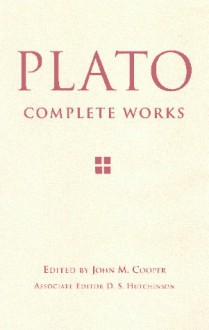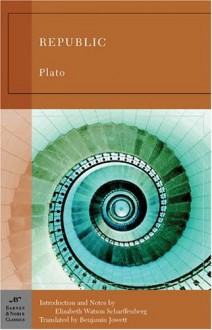
Having finally read this from cover to cover (with the exception of
The Republic to which I went to Allan Bloom’s translation) one cannot help but feel some sense of achievement. The purist in me loves that the entire corpus of Plato’s works is easily accessible in one volume. But I wouldn’t recommend reading
Plato: Complete Works as I have.
To read Plato, and actually digest Plato, is not an easy task. At times, I am not ashamed to admit that it’s a chore. Though the
Complete Works contain short introductions to each piece, they are not thorough analyses. The footnotes are welcome but far too few and sparse to provide any significant aid to understanding context. Citing Plato as great is easy, but I question how many of us truly understand why. In contrast, when reading Bloom’s edition of
The Republic it became painfully apparent how little I could appreciate Plato’s writing simply because I don’t have a full background of 5th and 4th century B.C. Athens. So much of what was written must be understood in context of the times and the people Plato is responding too. The arguments on their face are oftentimes specious in light of different values, science and presuppositions of modern times.
Each work and dialogue is probably worthy of, and has been subject of, an essay unto itself. It would be a mistake to try to make comprehensive summaries here. There is a reason that certain dialogues are more well known than others. For example, I think few readers would get much out of
Cratylus which focuses on Greek etymology and whether the name of a thing reflects its intrinsic value. Etymology was a highly respected and philosophic study in ancient Greece; not so much today. There are some exceptional and foundational works that should be read if for no other reason than gaining familiarity with the core works referenced by others. My personal list would include
Apology,
Crito,
Phaedo,
Phaedrus,
Gorgias,
Protagoras and
The Republic. I’d recommend
Symposium simply as a good example of the need to read the works in context. I also plan on revisiting
Parmenides when I can find a good interpretive essay to help explain it. It’s described as a challenging and enigmatic dialogue which is a vast understatement.
Some would include
Laws as a necessary read as well. It seems to exist in the shadows of
The Republic and I know some believe it’s an often missed gemstone. I’d disagree. I thought it tedious and lacking in any real engaging argument. Even Plato seems to abandon his dialectic form so that he can espouse his own legal code.
All in all, an excellent compilation to have on your bookshelf for reference or to impress people. However, if you are genuinely interested in understanding, I’d highly recommend buying select works individually with accompanying literature on the significance of each.


 Having finally read this from cover to cover (with the exception of The Republic to which I went to Allan Bloom’s translation) one cannot help but feel some sense of achievement. The purist in me loves that the entire corpus of Plato’s works is easily accessible in one volume. But I wouldn’t recommend reading Plato: Complete Works as I have.
Having finally read this from cover to cover (with the exception of The Republic to which I went to Allan Bloom’s translation) one cannot help but feel some sense of achievement. The purist in me loves that the entire corpus of Plato’s works is easily accessible in one volume. But I wouldn’t recommend reading Plato: Complete Works as I have.